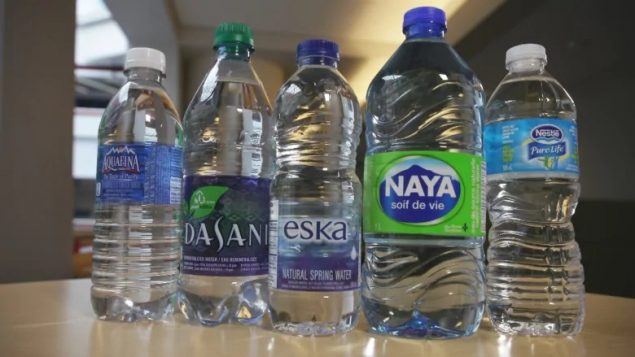In recent years the issue of plastic pollution and microplastics has become widely known.
There is the well-known Pacific gyre, a vast area of plastic waste, and microplastics have even been found in almost every ocean and lake around the world, even frozen in Arctic ice.
Microplastics have been detected in shellfish, in tap water samples from around the world, bottled water, beer, honey and much of the world’s table salt.

Various tests of table salt around the world has found almost all have some microplastics, whether sea salt or mined (CBC)
While it should be noted that there have been scientific criticisms of some of these studies, there is strong concern that microplastics are becoming an increasing problem with as yet undetermined negative consequences on marine, animal, and human health.
In you
With microplastics found in so things like shellfish, water, and salt it would seem likely it’s in us and now for the first time there’s initial evidence microplastics are indeed being consumed by humans.

The CBC investigative reports programme Marketplace tested Marketplace tested five leading brands of bottled water in Canada in 2018 and found microplastics in all of them. Other studies have found microplastics in tap water around the world (Bill Arnold/CBC)
A small pilot study of people in Finland, Italy, Japan, the Netherlands, Poland, Russia, the United Kingdom and Austria tested the volunteers stool samples and found microplastics in every single one.
The researchers identified nine different polymers of plastic, but the most common were PP (polypropylene) and PET (polyethylene terephthalate) which are commonly used in plastic bottles and in the plastic caps.
Lead author is Philipp Schwabl from the Division of Gastroenterology and Hepatology at MedUni Vienna. He said “Although there are initial indications that microplastics can damage the gastrointestinal tract by promoting inflammatory reactions or absorbing harmful substances, further studies are needed to assess the potential dangers of microplastics for humans”.
Others have noted that the microplastics are still too large to be absorbed into the body, but the chemical toxins the plastics absorb may leach out.
Both the study authors and other scientists note this study was too small and the methodology needs to be refined to draw any conclusions. However, it does reveal that there is a real potential for concern. Swabi has said that now that they have the ability to detect microplastics in stool a much larger study can be performed.
Additional information-sources
- Wisconsin Public Radio: R Kremer: May 10/18:-microplastics in beer
- Medical University Vienna: Oct 23/18; microplastics in humans
- NY Times (via PostMedia); D Quenqua: Oct 23/18: microplastics human stool
- Environmental Science and Technology: Oct 4/18: microplastic in salt
- CBC: Marketplace: Apr 6/18: microplastic in some Canadian bottled water.
- EcoWatch: J Conley: Oct 18/18: 90% of salt has microplastic
- National Geographic: L Parker: microplastic in table salt
- Guardian: Sep 6/17: mircroplastic in world tap water
- Huffington Post: S Shikeri: Sep 6.17: 86% world tap water has microplastics







For reasons beyond our control, and for an undetermined period of time, our comment section is now closed. However, our social networks remain open to your contributions.